Photos: Desire Lines
Desire Lines is one of the rare films that wants you to leave it thinking transgender men are hot. Its director, Jules Rosskam, invites the audience to be curious, perhaps Google why the bathhouse functions as the film’s nucleus, and subsequently understand cisgender and trans men cite bathhouses as a place of bodily acceptance and sexual transformation.
Like most of Rosskam’s filmography, Desire Lines, the hybrid docufilm that doesn’t yet have a wide release date, was a fruition of curiosity, one Rosskam says grew singularly 20 years ago after witnessing the number of trans men who develop an attraction for other men. That question organically manifested in both an immersive and enlightening story about a particular queer experience that history continuously denies, consisting of one-on-one interviews, erotic encounters, observational footage, and performed scenarios. Upon premiering the film at the 2024 Sundance Film Festival, the trans director scored the NEXT Special Jury Award, presented by Adobe.
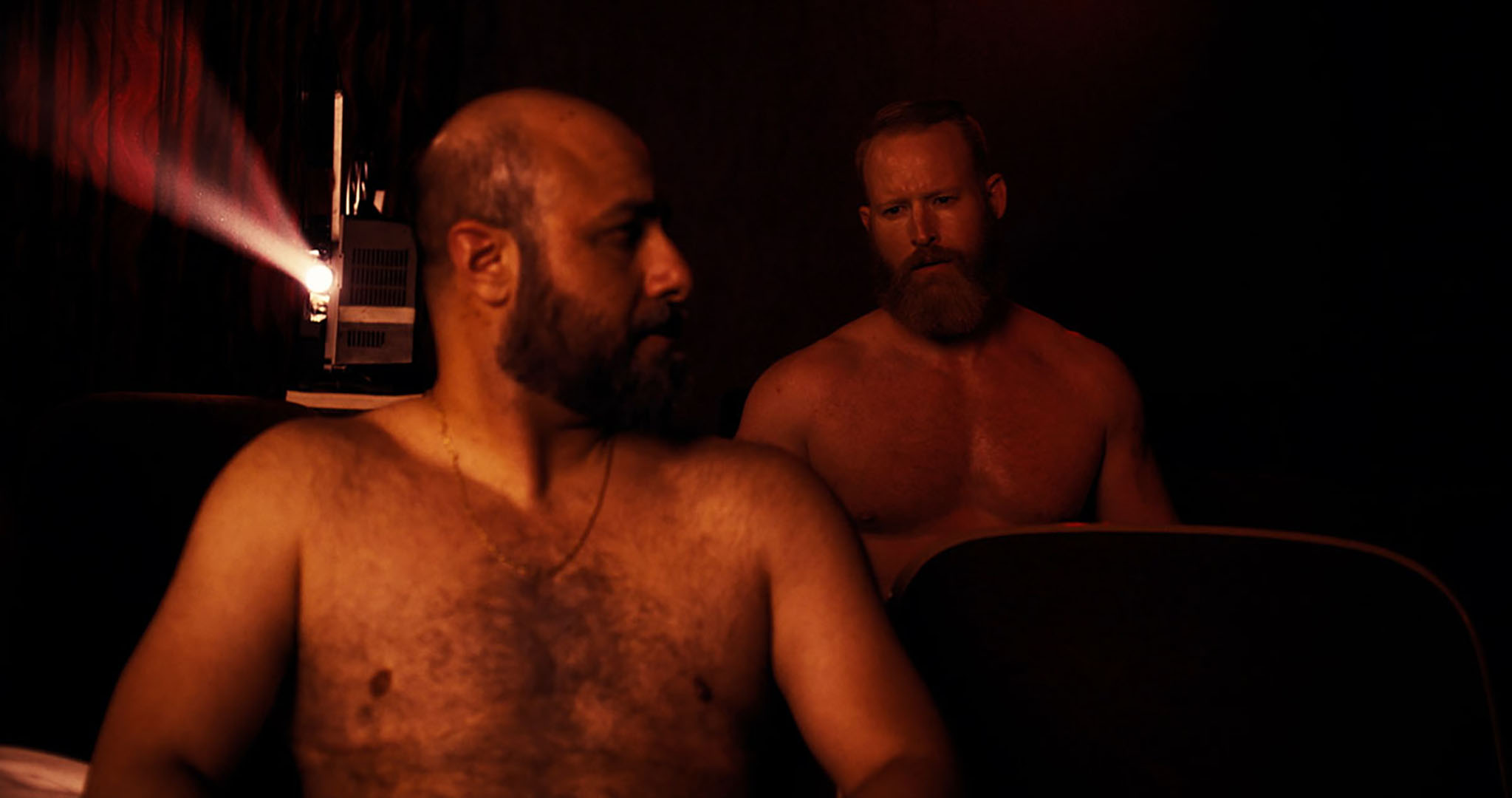
“I was honestly just waiting for someone else to make the film,” director Rosskam told Beyond The Pines. “I don’t totally know why I didn’t want to dive in and be the one to make it. But in 2019, I finally got to a tipping point where I was like, ‘Okay, clearly, no one else is making this film.’”
Functioning as an abbreviated history retelling, Desire Lines centers around a 60-year-old Iranian-American named Ahmad (Aden Hakimi) who has long-suppressed desires for other men and turns to the LGBTQ archives to understand his sexual and gender identity. There, he meets the dashing, young trans archivist Kieran (Theo Germaine), who quite literally witnesses Ahmad getting sucked into the records, becoming a time-traveler who participates in the queer cruising history he reads about. There, Ahmad rediscovers oral history paved by the undersung trans male activist and “trancestor” Lou Sullivan.
“I mean, Lou was kind of always part of it just because he had to,” Rosskam said. “In my mind, if he hadn’t done everything he had done, I don’t know that gay trans men would be able to be out and access all sorts of things and transition, like we can now.”
For as much as both Ahmad and Kieran shuffle through mountains of documents to uncover Lou’s legacy, Rosskam builds a moving thesis through a misremembered 20th-century trans trailblazer using Lou’s years-spanning interviews with Dr. Ira B. Pauly and personal letters.
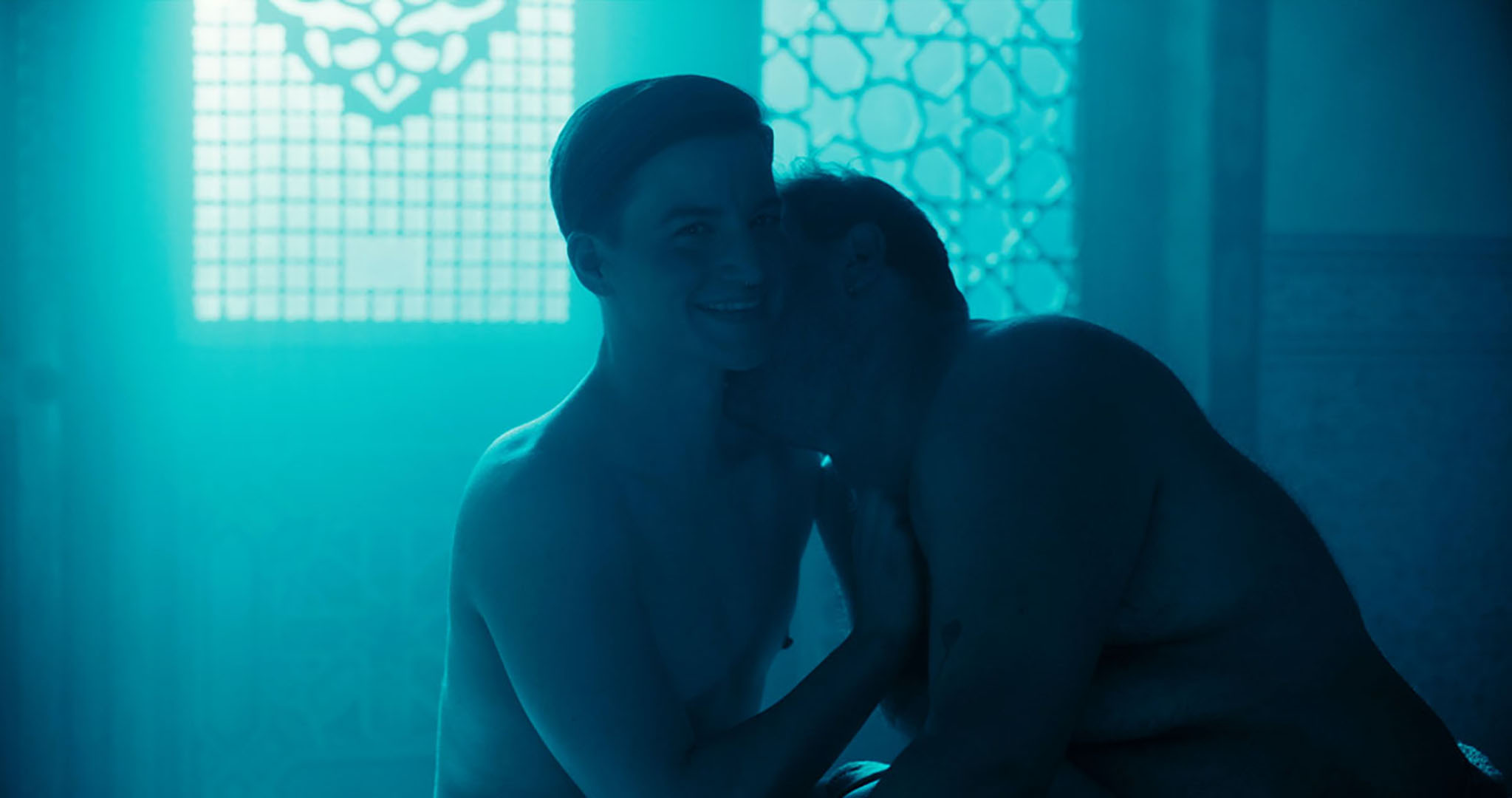
“I first learned about Lou in maybe 2006, through [the] trans historian and theorist Susan Stryker,” Rosskam clarified. “She was the one at the LGBT Historical Society who processed his entire estate. When she processed his estate, she acquired all of his [Lou’s] letters, journals, photos— everything. She was part of bringing that [awareness to Lou] into the LGBT historical society in San Francisco.
Where Lou only completed a fraction of his aspirations before succumbing to HIV in 1991, his talking points expanded into new generations, generating contemporary oral histories from a diverse group of transmen across North America, which Rosskam collected all of 2019. These participants candidly discuss the evolution of their desires and illuminate their struggles with gender (non)conformity, fetishization, transphobia, sexual racism, and safer sex.
Though the fantastical bathhouse end scene is mildly erotic, the bench-etched heart with the trans activist’s name inside felt like a more potent tale of bridging the past and present conversations of the trans male experience, as Rosskam said in a post-premiere Q&A of his film at Sundance: “Bathhouses and archives are not that different. They’re both spaces where you’re cruising: one for sex and another for knowledge. These things aren’t that different.”
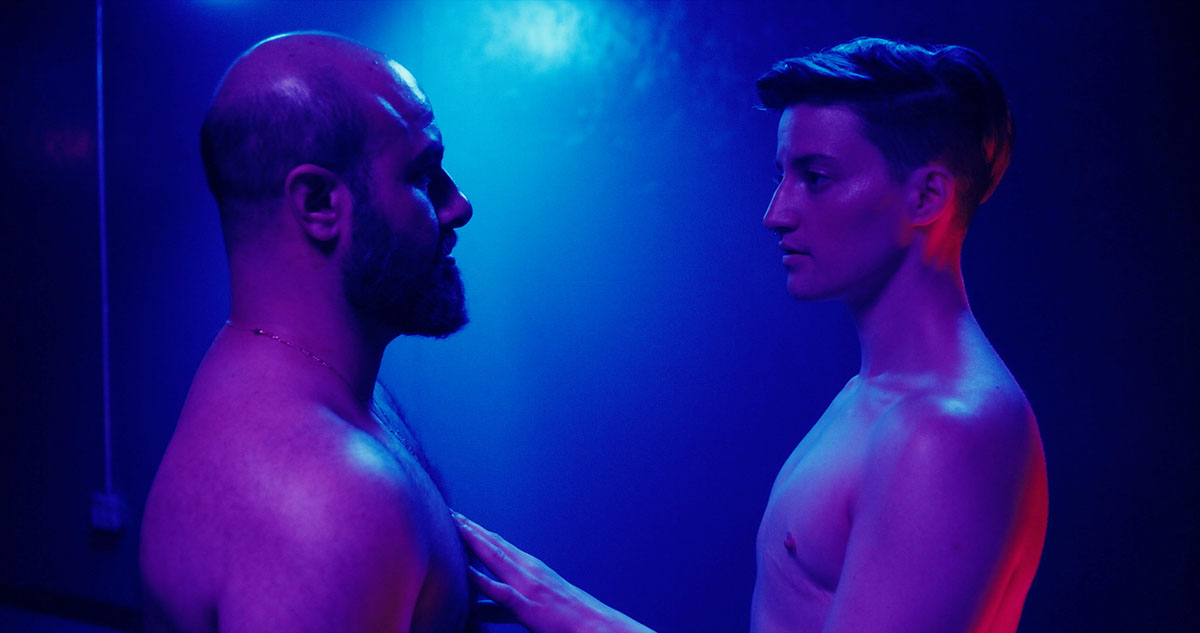
Even when nudity finds its way on set, the purpose is bigger than any visual. If anything, Rosskam’s portrayal of bathhouse cruising has too many towels. However, that was still enough for one gallery to not showcase Rosskam’s film. “ I won’t name names, but someone from a big gallery had reached out [to me] about showing the film. After she watched it, she said, like, ‘I love this film, but I can’t show it because genitals are seen.’ I was like, ‘Okay, I get it.’ But it’s unfortunate and feels a little ridiculous.”
“That reaction reminded me of when I first started working on this [film] because I was originally operating from a place of wanting to ride the line between what is an actual pornographic film and what is an art film,” Rosskam continued. “Part of the drive for me was to make sure people walked away from the film thinking trans men were hot. And for trans men watching the film to be like, ‘Yeah, we’re fucking hot.’”
Desire Lines not only erotically pushes against binaries, but embraces bewilderment as a serious liberatory strategy for trans representation through interviewees such as Juju Minx, who excitedly discusses the gender euphoria of having a sex partner who calls him “daddy” while having female genitalia. And who can forget another interviewee’s utter laughter following the “Can a vagina be masculine?” question, which would have traditionally raised eyebrows in offense if viewers hadn’t stepped into the film’s bathhouse world and cruising shenanigans.
The film is equally aware and unashamed of the presentation of these conversations, going as far as to click past unused interviews, close out of windows containing primary texts used in the film, and re-tagging Juju’s interview video to more accurately fit his “dominant bottom” personality– a visual reminder that Rosskam is purposefully provoking public curiosity to know more about the trans male experience.
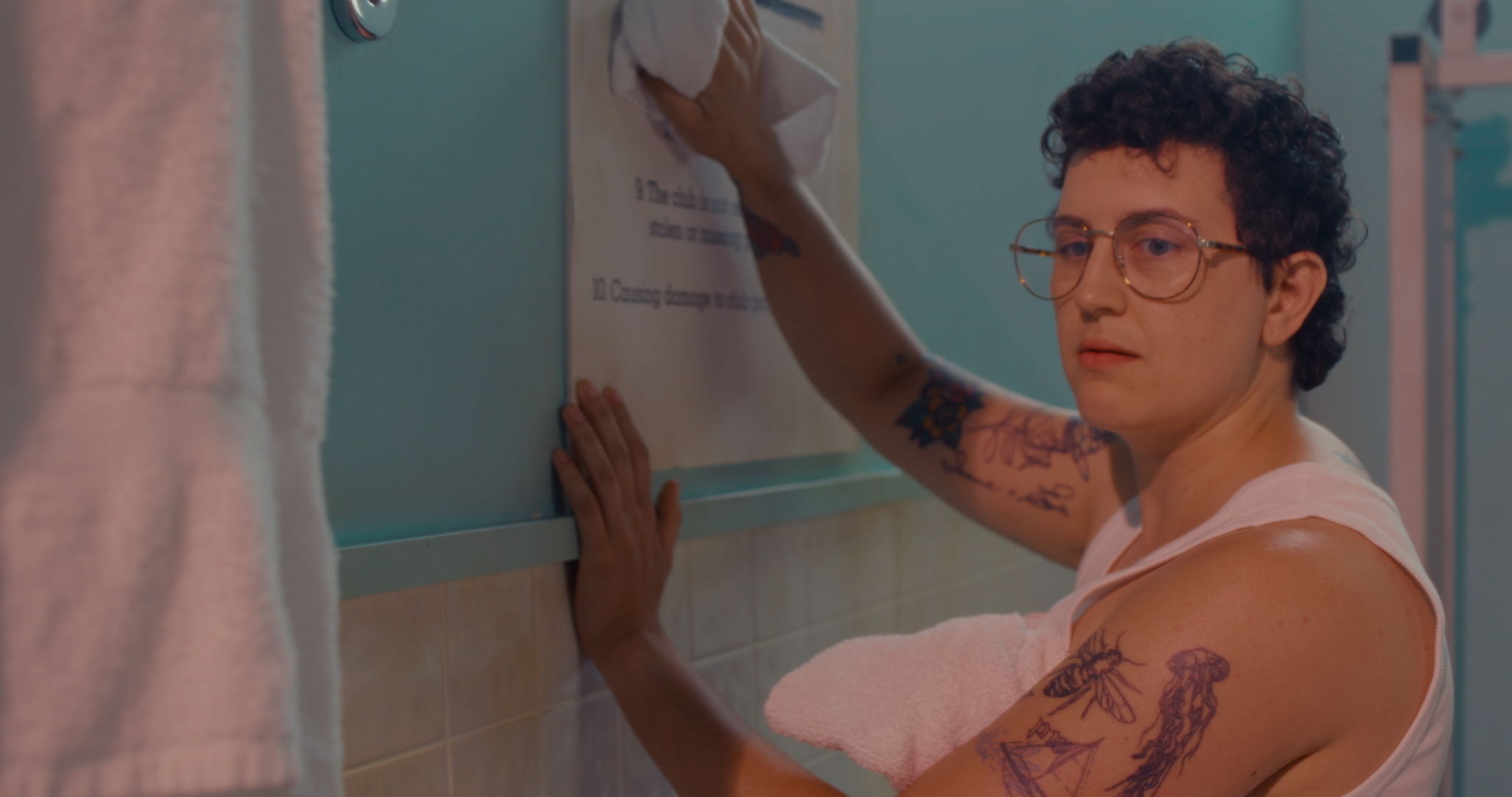
“I want people to walk away with questions, not answers. That’s pretty much standard for all of my films. I think questions are far more important than answers because answers are almost always singular,” Rosskam says. “Sure, I want you to walk away from this film, thinking, like, ‘Wow, I learned something,’ but not thinking, you know who and what trans men are. I want you to be like, ‘Well, that was really interesting. I have some answers, and I have a lot more questions.’”
There’s no doubt that Rosskam, scriptwriter Nate Gualtieri, long-time friend and actor Aden Hakimi, and Desire Line’s predominant LGBTQ crew bolstered immense talent, and the collective’s emotional advocacy for uplifting BIPOC and LGBTQ voices pierces the very heart of the film, staying with viewers long after watching. It covers what few have dared to, and asks more filmmakers to tell LGBTQ stories that don’t necessarily follow a straight line.

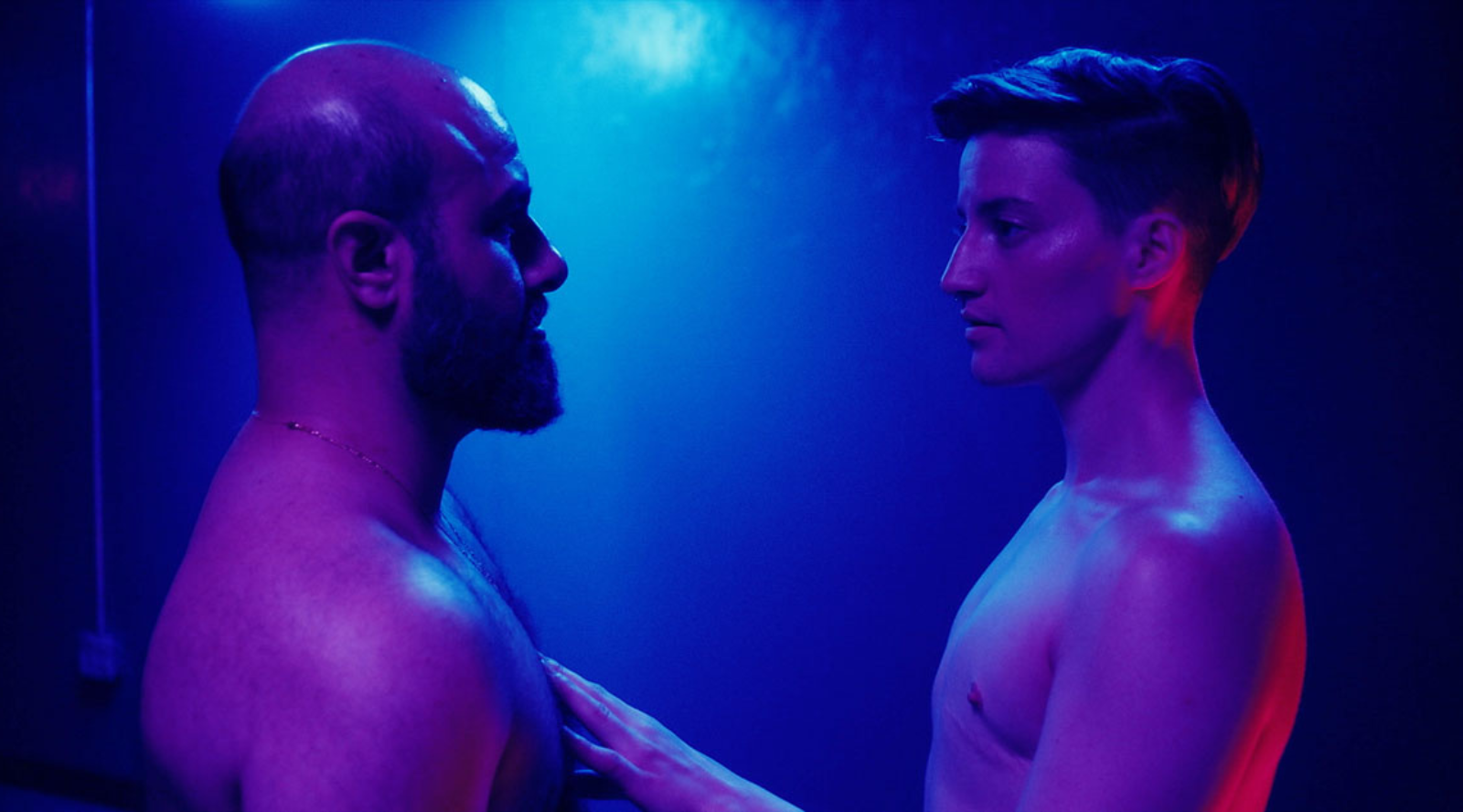
Leave a Reply